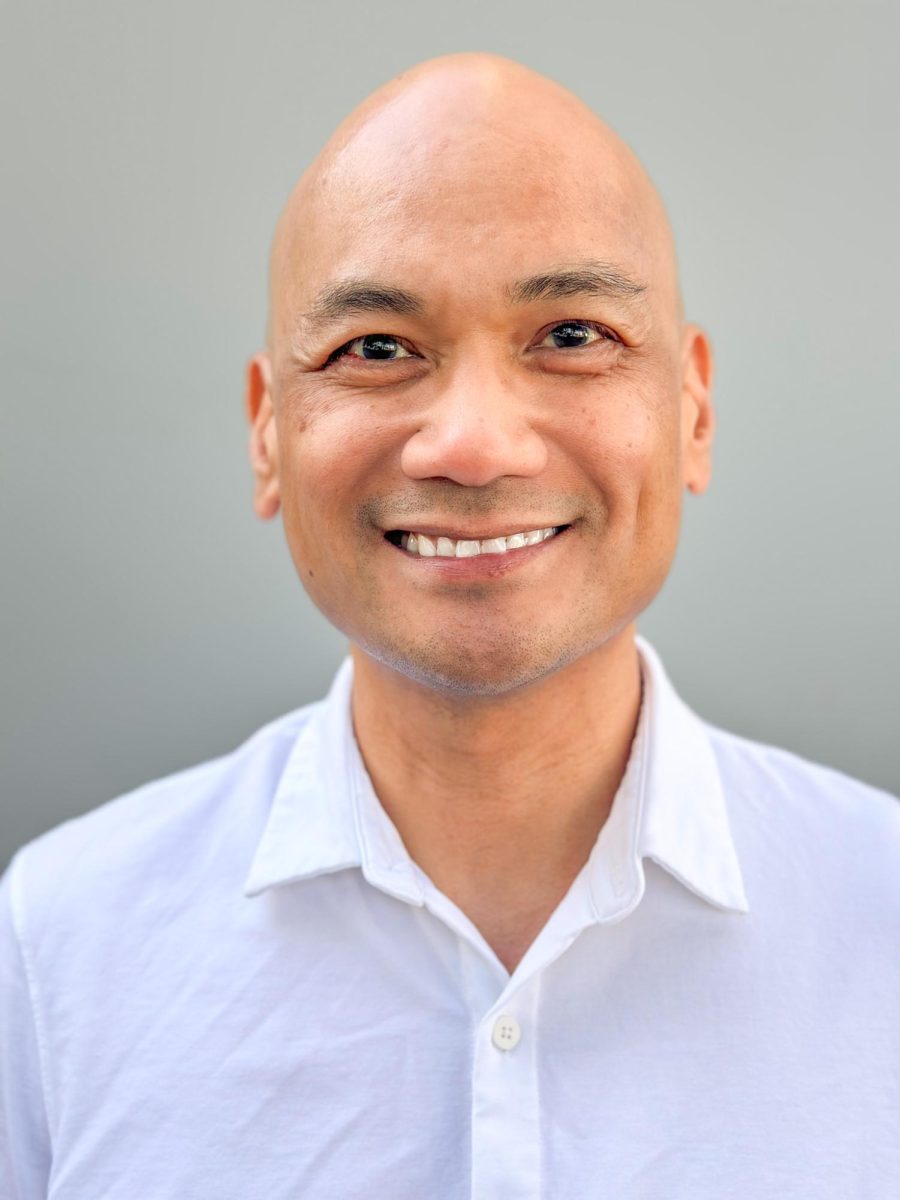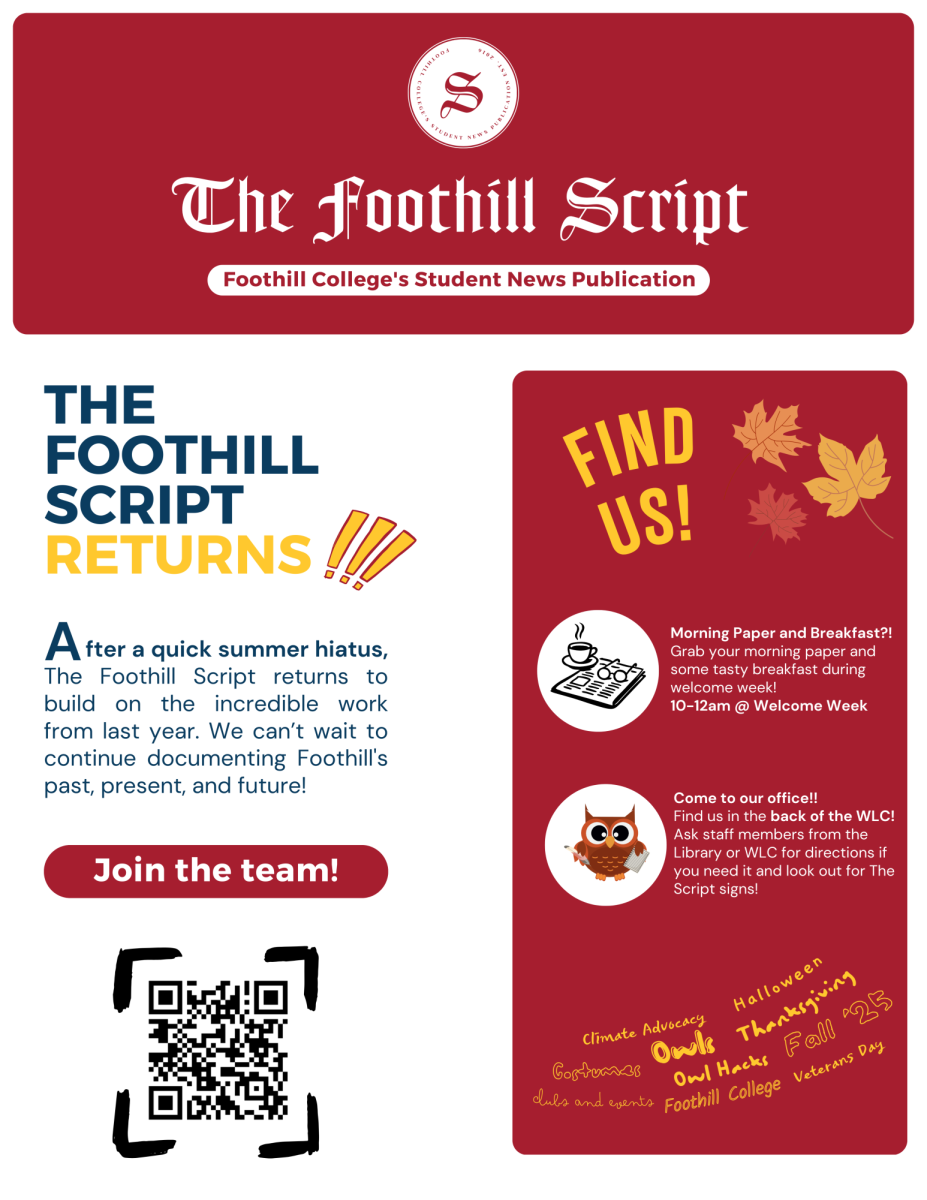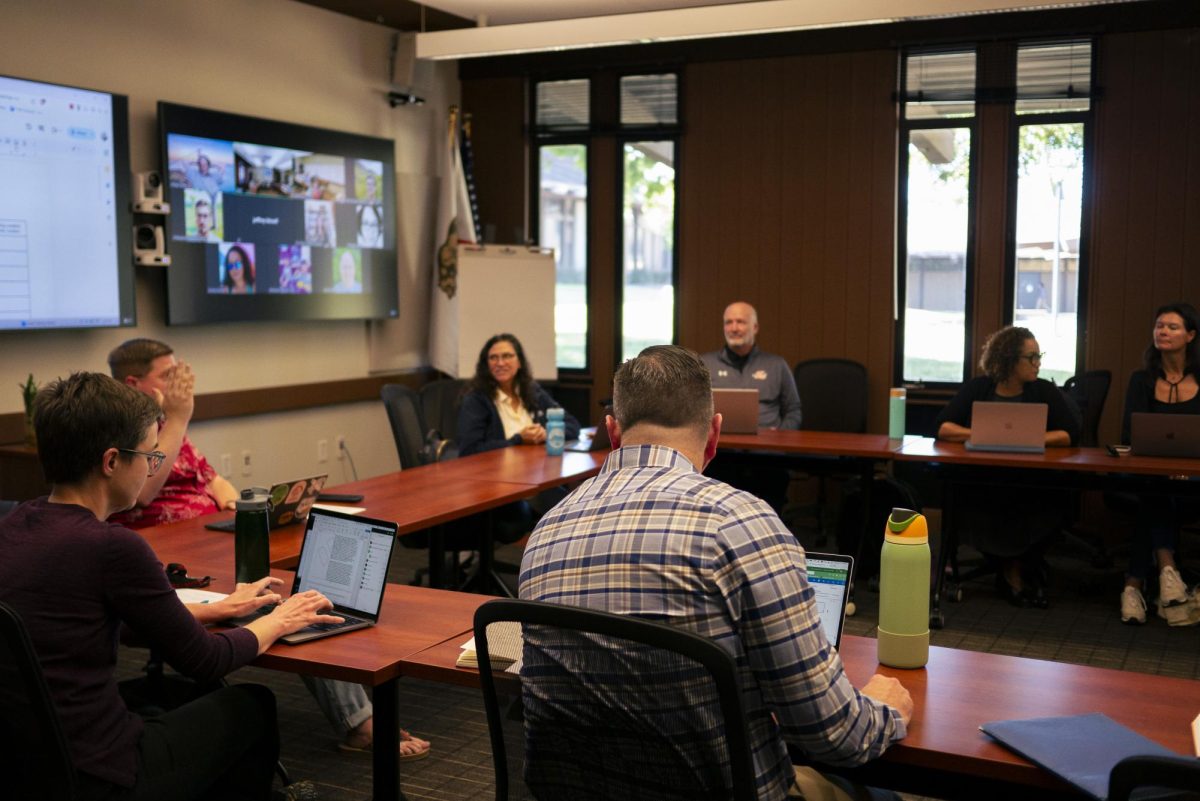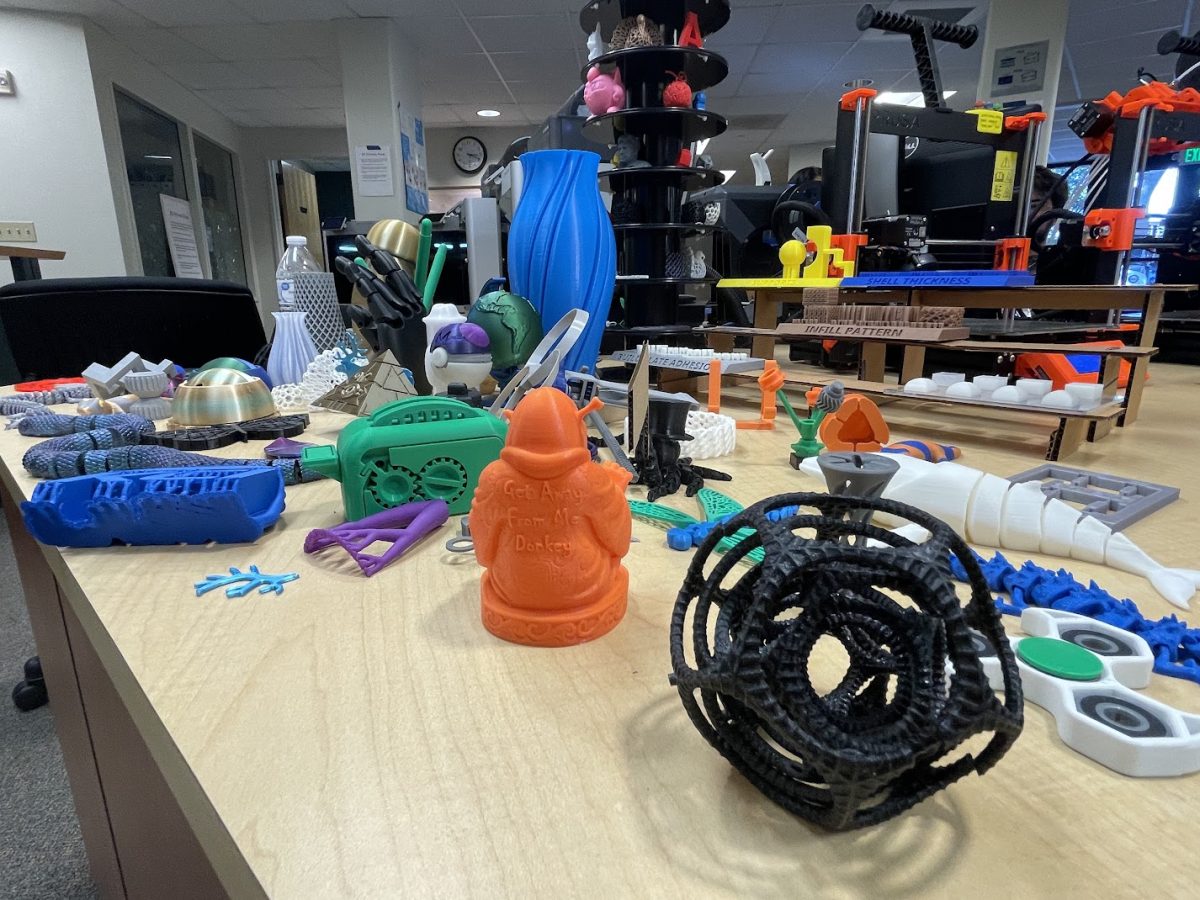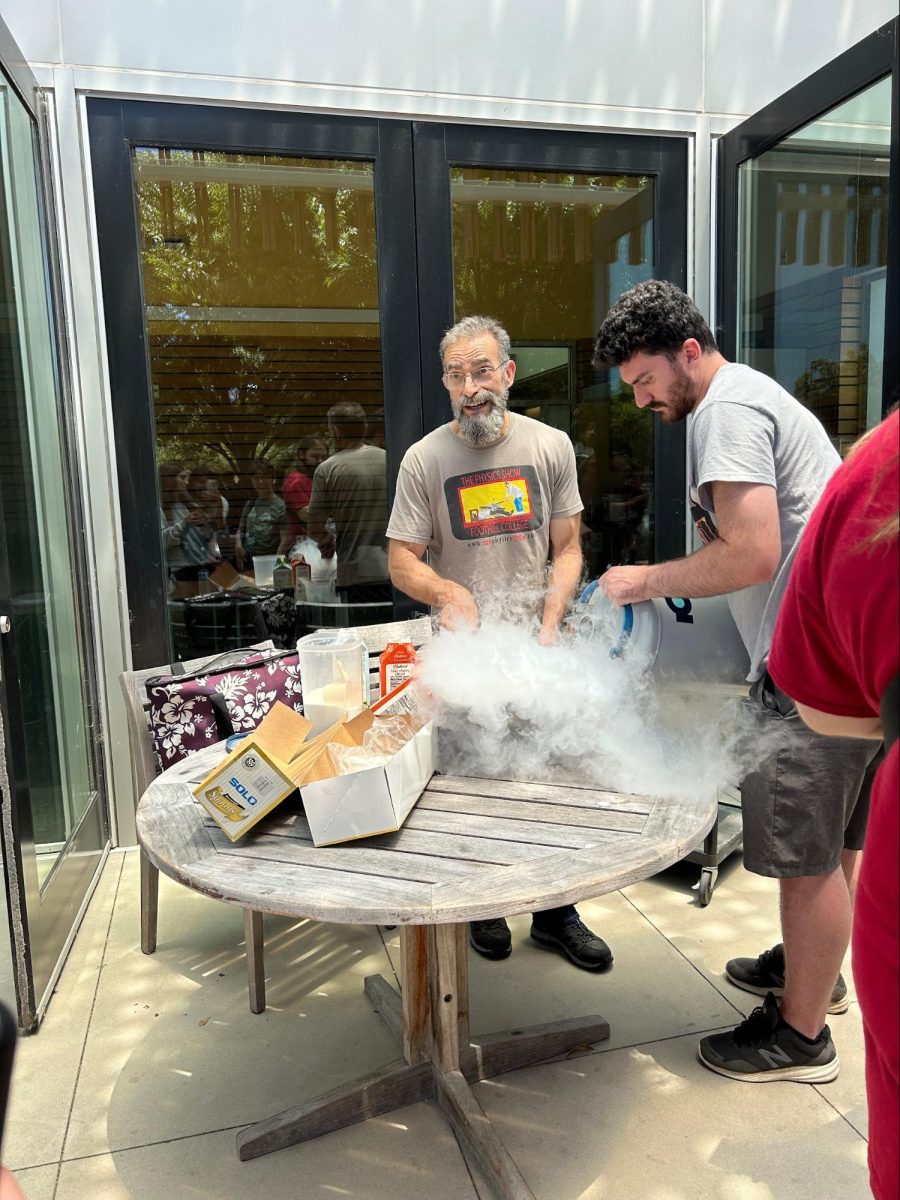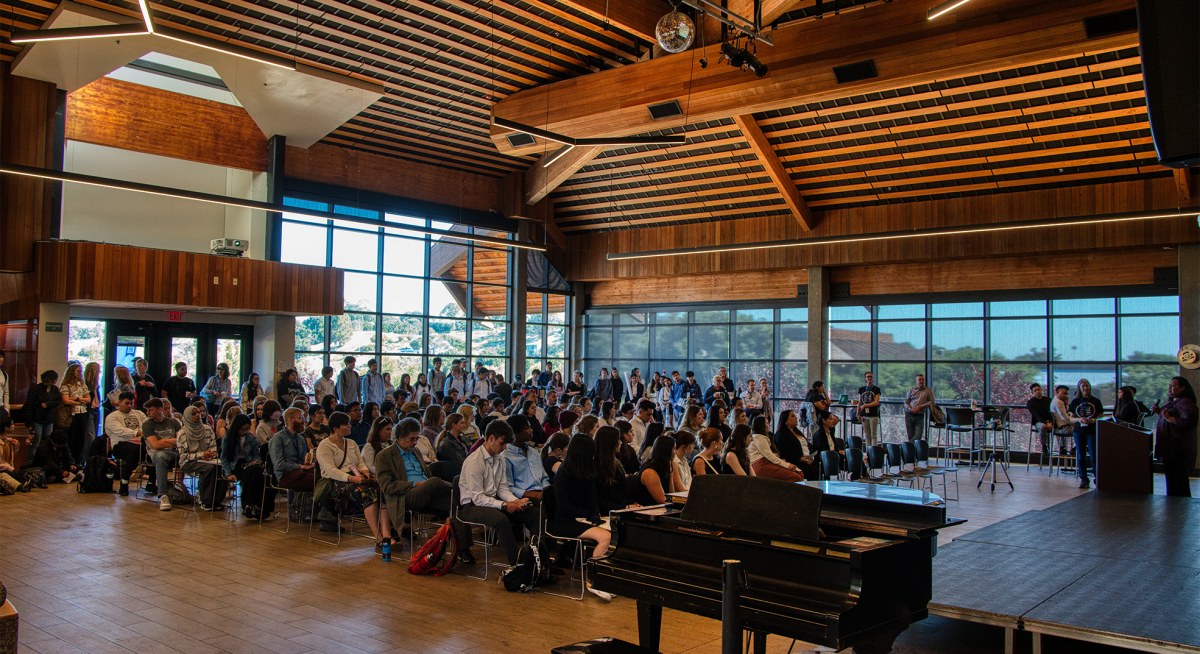On the 22nd of October last year, members of the College Curriculum Committee gathered in a room I’d passed by so many times before, but had never looked twice at. Adjacent to the library quad lay an unassuming building with a door that opened to a room larger than I had expected. The seats around the table were already filled, since I had come in late to the meeting, and it was clear my presence was not expected as many heads swiveled to me awkwardly pulling out a chair and placing it against the wall.
The CCC is overlooked by the majority of the Foothill students and public at large, despite how big of an impact the decisions here affect the very topic matters that professors get to teach in their classes. Foothill also is unique in the way that curriculum is chosen for each area of focus. Known as Division Committees, groups of two to ten instructors come together to discuss their curricula and potential changes they wish to make. At these CCC meetings however, the divisions come together and vote upon overall curriculum proposals.
At the end of the meeting, I beelined my way towards Ben Kaupp, the Vice President of the CCC and forerunner of the meeting I happened upon. Teachers were already crowding him as he attempted to pack up his laptop and papers, and I almost considered approaching him at a different time. But being that I was the only member of the public in attendance, it became clear that blending into the crowd wasn’t going to be an option. As the teachers finally dispersed, Ben spotted me and waved me over. Despite the high position of power he holds within the CCC as Vice President, Kaupp looked as if he just came back from vacation, in his Hawaiian shirt and sandals.
Though Kaupp began teaching in 2011, it wasn’t until 2019 that he joined the Foothill faculty, and eventually took charge of the Tools for Transition program on campus for neurodivergent students. Kaupp, who has a Master’s in Education, says that the program focuses on “executive functioning, social skills, academic and career readiness—basically all of the adulting skills that, for some reason, society believes we all learn through osmosis.”
Though there are many services on campus to help neurodivergent students, he feels that most likely the biggest reason as to why it feels like there aren’t as many resources is purely a marketing issue. “We have tons of services that not many people know about,” he told me. However, he also noted that making sure students feel they belong to a community on campus is the biggest factor contributing to a student’s success, which has been proven across countless studies. “Many students see themselves as outsiders,” he said. “So they risk seeing the hurdles that affect all of us as signs that they aren’t cut out for college.”
When he first joined the CCC, his main goal was to improve how quickly new curriculum in Tools for Transition gets approved. Joining the committee ended up being more fruitful than that—as a new face on campus, he found the committee to be an easy way to meet his fellow colleagues, and he gained a wider perspective on the variety of courses Foothill offered.
Despite how unknown the CCC is to the majority of the student population, “CCC is a gatekeeper,” Kaupp said. “No curriculum can exist without us.” Kaupp takes pride as well in the strides CCC has made since his arrival. “I have made it a goal to streamline the process, [and] to make it easier for instructors to create courses.” He’s found that some of the most memorable courses come from allowing professors to teach the topics that they’re passionate about. “A perfect example of this would be Dr. Mona Rawal’s Ethics in Artificial Intelligence class,” he told me.
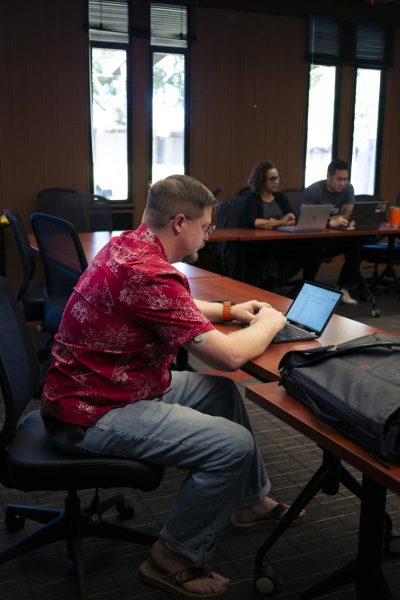
Ben Kaupp during the CCC meeting on October 22nd.
However, at the same time, he recognizes that he is, first and foremost, “the voice of the committee to the rest of campus.” While he may hold some amount of sway within the committee and facilitates every meeting, the meat of his position lies in being the liaison between “[the] Committee and the college, district, and the other community colleges in the state.” At the moment, the CCC has been working on an “ambitious five-year project” with an end goal of improving the equity of student achievement across all courses.
One of the hot topics that recently was voted upon was deciding on whether or not to keep Division Committees within the CCC, which are split up by subject departments. Although Kaupp believed perhaps it would be better to get rid of them, the majority of the CCC was in favor of keeping the Division Committees. “I have gladly defended that practice at the district level because that was the will of the body I represent,” he stated. Instead of allowing professors from other fields make decisions upon a class they may have never taught, Division Committees help keep the quality of the curriculum higher due to the Division Committee members being experts of the course matter at hand. However, this method has recently proven to possibly toe the line of legality in regards to a law that Ben Kaupp calls “outdated”: the Brown Act. After an anonymous constituent made a complaint to the committee regarding the public’s accessibility to Division Committee meetings, as is required due to the Brown Act, the CCC was forced to either rectify the situation, or disband the sub-committees altogether. “I am the unwilling messenger of Brown,” Kaupp said at the meeting.
The Brown Act, which passed in 1953, was passed in response to council members of public local agencies consistently holding meetings in secret and making decisions that actively went against the interests of the public. Not only does the Brown Act necessitate that all local government agencies make their meetings accessible to the public, but that they also must be held in person. Especially during the COVID quarantining, this proved to become increasingly difficult, and even now, the majority of the committee members must attend in person. Though the Brown Act was partially updated in 2021 and 2022 to include illness and COVID-related exceptions, meetings are still required to be hosted mostly in person.
This has led to a number of changes in how Division meetings are planned, with some general rules currently being outlined: meeting agendas must be posted 72 hours in advance, each Division must have a representative for constituents to send comments to, and a better idea of committee size, decorum, and predictability must be set.
At a second meeting that I attended, the CCC discussed some updates to a larger change that is currently affecting community colleges statewide: Bill 1111. Not only is the IGETC being renamed to the Cal-GETC, but the numbering of GE courses as well as their learning outcomes are being standardized statewide in order to improve a student’s ability to acquire GE credits across different campuses. For Foothill, the first 6 courses that have been updated to follow these new guidelines are set to go into effect early 2025, with the rest of the GEs planned to follow suit soon after. Overall, more than 70 GE classes are planned to be updated to the new Cal-GETC standards.
While there is some concern amongst the public regarding the possible limitations this may impose upon a teacher, Evan Gilstrap, who is Foothill’s Articulation Officer, assured me that a teacher’s “academic freedom” is currently legally protected in California. The bill, known as SR-45, grants a teacher the right to the “freedom of thought and expression”, as well as the manner in which the curriculum is taught. Gilstrap, who has been working directly with the Academic Senate for California Community Colleges as well as the CSU and UCs, added that the changes to the GEs are closer to updated general templates that teachers must follow in order to maintain articulation, rather than a strict guideline.
“There is sometimes a tendency among people in academia to resist change,” Ben Kaupp said to me. The “best way” to teach a course is always evolving, he says, and a lot of the practices he learned 15 years ago for his Master’s have now been thrown out or have changed beyond recognition. He doesn’t believe that change should happen “for the sake of change,” but that a willingness to innovate and reflect on previous choices should be central to what the CCC does.

